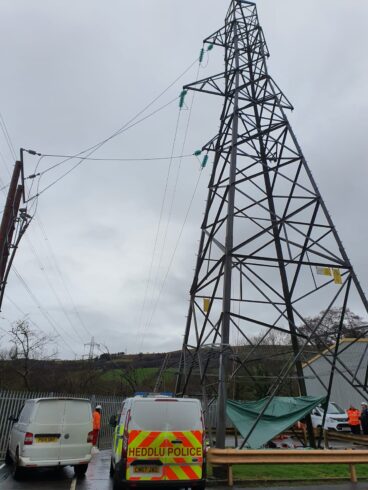The National Grid has been fined more than £3m after its failures left a worker with life-changing injuries from working on a pylon in South Wales.
On 3 December 2020, Justin Hollins, 50, was replacing step bolts on the pylon at Treforest Industrial Estate in Pontypridd when he received an electric shock of 33,000 volts.

The father-of-two sustained burns to 40% of his body, including to his arms and legs, and also lost part of his right buttock.
Cardiff Crown Court heard that Hollins also suffered nerve damage that affects mobility, was wearing a climbing harness and was left hanging on the pylon for some time before being rescued by his colleagues.
Hollins, who had six operations during his first 10 days in hospital, told of how he required 24-hour care for months afterwards. “This was a very difficult time, with relentless operations and endless, painful changing of dressings,” he said.
“Every day was a huge battle. I stopped needing to attend hospital appointments in August 2022 but will remain a burns patient for the rest of my life.”
‘Lucky to be alive’
An investigation by the Health and Safety Executive (HSE) found that 4 Power Ltd, which is based at Unit 1b, Iddenshall Hall Farm in Cheshire, failed to properly plan and assess the risk. Had this been done, it would have identified that the arms of the pylon were too short to do the work safely while maintaining the specified safety distances as per industry standards.
National Grid Electricity Distribution (South Wales) Plc, based at Avonbank, Feeder Road, Bristol, failed to ensure that the electricity was off to do the work on the pylon safely.
4 Power Ltd pleaded guilty to breaching Section 2(1) of the Health and Safety at Work etc Act 1974. It was fined £80,000 and ordered to pay costs of £14,123.
Speaking after the hearing, HSE Inspector Rhys Hughes said: “The injuries sustained by Mr Hollins have been truly life-changing. He is lucky to be alive.
“What is so frustrating in incidents like these is if a safe system of work had been in place before the incident, his injuries would have been prevented.”











